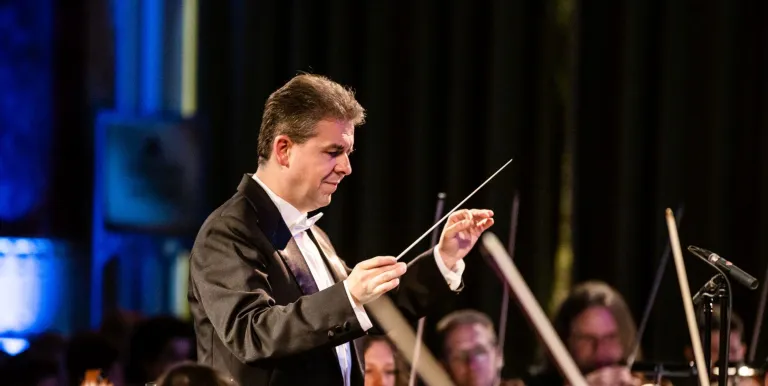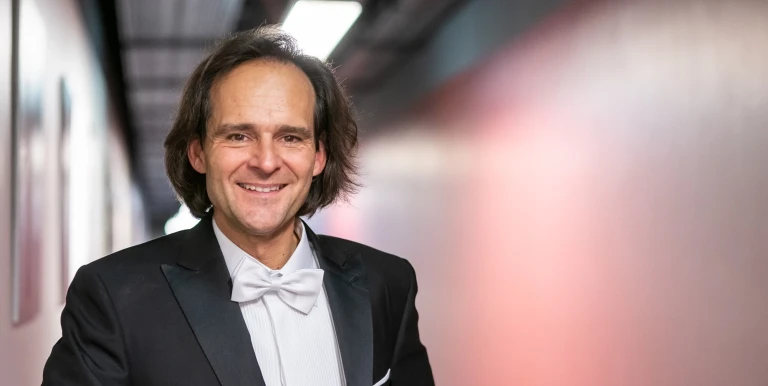one interval
Conductor:
Featuring:
Wagner
Parsifal - prelude
Saint-Saëns
Cello Concerto No. 1 in A minor, Op. 33
R. Strauss
Don Juan - symphonic poem, Op. 20
Borodin
Prince Igor - Polovtsian Dances
Playing under the baton of Gábor Horváth, the Szent István Philharmonic Orchestra will present various shades of the late Romantic and turn-of-the-century musical palette. Also participating will be two choirs of the orchestra’s alma mater, which also functions as the ensemble’s home, with Bence Temesvári, a former student at the Szent István Music High School and solo cellist with the Vienna Symphony, serving as the soloist in the work by Saint-Saëns.
Parsifal is Wagner’s final opera, and as with all of his works for the stage, he wrote the libretto himself. The premiere took place in Bayreuth’s Festspielhaus on 26 July 1882, to great acclaim. Saint-Saëns composed his Cello Concerto No. 1 in A minor in 1872. It received its first airing at the Conservatoire de Paris, on 19 January 1873, with Auguste Tolbecque as the soloist. The work is the fruit of a particularly fertile period in the French composer’s career, and is quite a mature piece despite his young age at the time. Richard Strauss wrote his symphonic poem Don Juan at the age of 24 and conducted the premiere himself in Weimar in 1889. The source of inspiration for the work was Nikolaus Lenau’s poem Don Juan, so it is not the knight’s adventures and loves that the composition illustrates, but rather his passionate life. In the piece, we encounter all kinds of shades of emotions as various female figures are paraded before us. Although Alexander Borodin began work on the biggest undertaking of his life in 1869, it was only three years after his death that the opera Prince Igor was performed before an audience, with the task of finishing it falling to his two friends Alexander Glazunov and Nikolai Rimsky-Korsakov. The excerpt from the opera being performed tonight, the Polovtsian Dances, has over time evolved into an independent repertoire piece and is frequently heard in concert halls.
Presented by: Szent István Philharmonic
-
We wish to inform you that in the event that Müpa Budapest's underground garage and outdoor car park are operating at full capacity, it is advisable to plan for increased waiting times when you arrive. In order to avoid this, we recommend that you depart for our events in time, so that you you can find the ideal parking spot quickly and smoothly and arrive for our performance in comfort. The Müpa Budapest underground garage gates will be operated by an automatic number plate recognition system. Parking is free of charge for visitors with tickets to any of our paid performances on that given day. The detailed parking policy of Müpa Budapest is available here.










